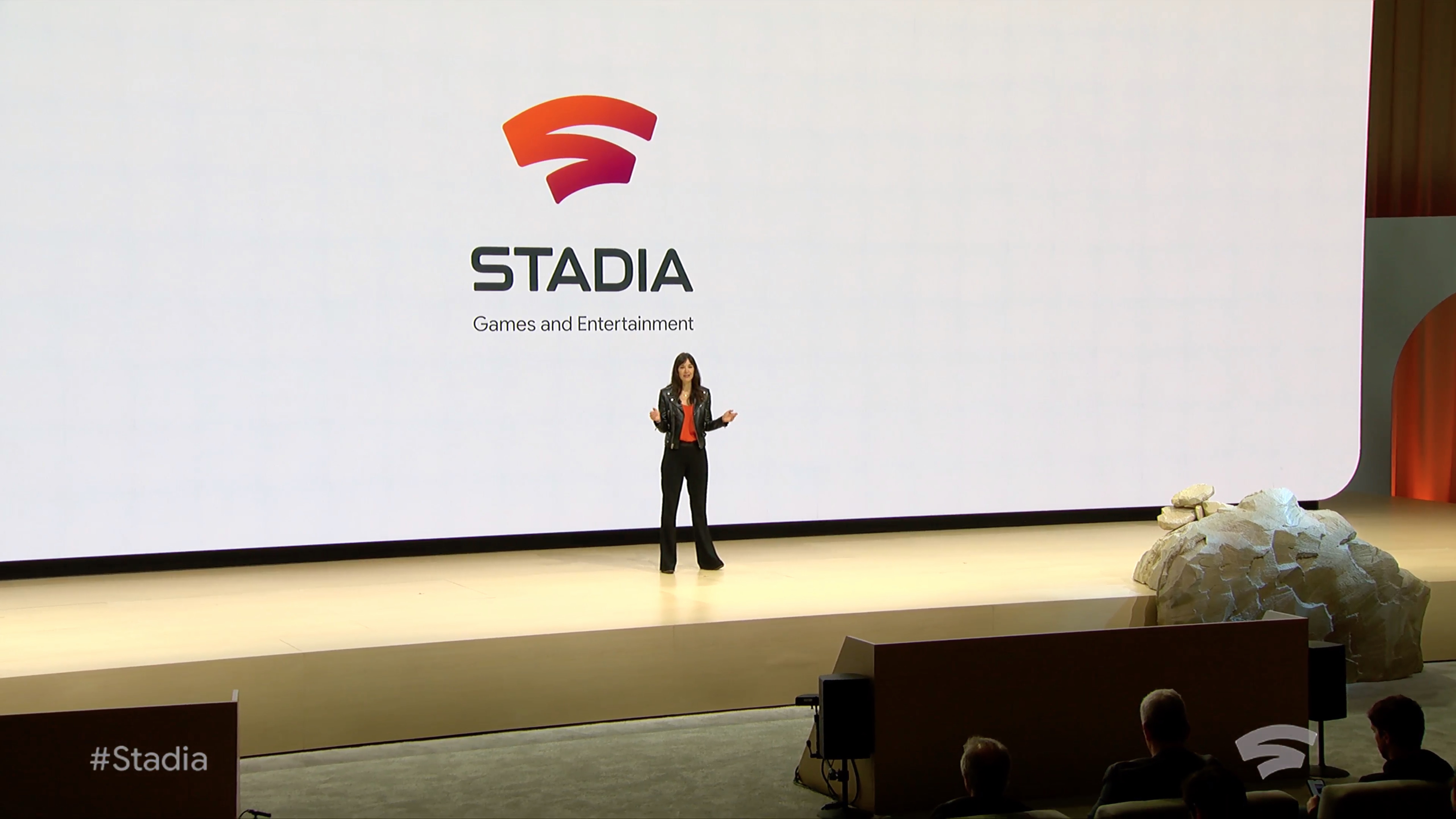As the gaming market continues to boom, billions of dollars are being invested in new games and new streaming platforms vying to own a piece of the action. Most of the value is accruing to the large incumbents in a space, however, and the entrance of Google and other big tech companies makes it difficult to identify where there are compelling opportunities for entrepreneurs to build new empires.
TechCrunch media analyst Eric Peckham recently sat down with Paul Murphy, Partner at European venture firm Northzone, to discuss Paul’s view of the market and where he is focusing his dollars. Below is the transcript of the conversation (edited for length and clarity):
Eric Peckham: You co-founded the hit mobile game Dots before moving to London and joining Northzone last year. Are you still bullish on investment opportunities in mobile gaming or do you think the market has changed?
Paul Murphy: I’m bullish on mobile gaming–the market is bigger than it has ever been. There’s a whole generation of people that have been trained to play games on mobile phones. So those are things that are very positive.
The challenge is you don’t really have a rising tide moment anymore. The winners have won. And so it’s very, very difficult for someone to enter with new content and build a business that’s as big as Supercell or King, regardless of how good their content is. So while the prize for winning in mobile gaming content big, the likelihood is smaller.
Where I’m spending most of my time is not on content, it’s on components within mobile gaming. We’re looking at infrastructure: different platforms that enable mobile gaming, like Bunch which we invested in.
Their product allows you to do live video and audio on top of mobile games. So we don’t have to take any content risk. We’re betting that this great product will fit into a large inventory ecosystem.
Peckham: New mobile game studios that are launching all seem to fall under the sphere of influence of these bigger companies. They get a strategic investment from Supercell or another company. To your point, it’s tough for a small startup to compete entirely on its own.
Murphy: It’s possible in mobile gaming still but it’s really, really hard now. At the same time, what you’ve seen is the odds of winning are lower. It is hard to reach the same scale when it costs you $5.00 to acquire a user today, whereas when Candy Crush launched, it was $0.05 per user. So it’s almost impossible to achieve King-like scale today.
Therefore, you’re looking at similar content risk with reduced upside, which makes that equation less attractive for venture capital. But it might be perfectly fine for an established company because they don’t need to do the marketing, they have the audience already.
The big gaming companies all struggle with the challenge of how to create the next hit IP. They have this machine that can bring any great game to market efficiently, with a large audience they can cross promote from and capital they can invest to build a big brand quickly. For them, the biggest challenge is getting the best content.
So it’s natural to me that the pendulum has swung towards strategic investors in mobile gaming content. Epic has a fund that they set up with Improbable, Supercell is making direct investments, Tencent has been making investments for years. Even from a content perspective, you’re probably going to see Apple, Google, and Amazon making more content investments in mobile gaming.

Image via Getty Images / aurielaki
Peckham: Does this same market dynamic apply to PC games and console games? Do you see a certain area within gaming where there’s still opportunity for independent startups to create the game itself and find success at a venture scale?
Murphy: The reason we made our investment in Klang Games, which is building an MMO called Seed that people will primarily play through PC, is that while there is content risk–you’re never going to get rid of the possibility that the IP doesn’t fly–if it works, it will be massive…an Earth-shattering level of success. If their vision comes to life, it will be very, very big.
So that one has all the risks that you’d have in any other game studio but the upside is exponentially larger, so the bet makes sense to us. And it so happens that it’s going to be on PC first, where there’s certainly a lot of competition but it’s not as saturated and the monetization methods are healthier than in mobile gaming. In PC, you don’t have to do free-to-play tactics that interfere with the gameplay.
Peckham: Klang Games was your first venture investment I believe, right? I know you posted a great blog post talking about it.
Murphy: Yes, I met the team during my second week at Northzone actually. I had never come across a team in gaming with such a big vision. The way they have mapped it out, this will be the largest simulation game ever produced and also as approachable as something like a traditional social network.
And it will have the depth of something like League of Legends. So it had all of these elements combined with a very credible team gave me confidence that these guys can actually pull this off.
Peckham: How is the increasing cross-platform dynamic of gaming changing the space? Rather than having clearly defined console games, PC games, and mobile games, we’re seeing AAA games that were originally created for a console or PC now being made available even on your phone (like Fortnite and Call of Duty).
Murphy: These companion experiences on mobile may not be as intense as the gameplay when you’re sitting at home on your PC but they want to engage with that IP even when they are on the go. It’s enabling much deeper engagement.
I think there are going to be extensions of the IP for a game like Fortnite onto almost every digital screen that you have: your television, your phone, your PC, your console, etc. That’s just being smart, delivering what your audience wants.
Peckham: What will be the impact of a shift to game streaming platforms? Google announced Stadia, there’s PlayStation Now, and Amazon and other big companies are working on them too. How does that change the dynamics here? Which companies are going to find the most success and where are the business opportunities?
Murphy: I think it’s going to be huge. Right now, it’s nontrivial to install even a game from Steam on the computer. Lots of people do it, but it’s not trivial. It’s not instant. Anytime you remove friction from a gameplay, the developers win. So that’s very positive. But it will probably require developers to change how they design their games.
If you think about a funnel, you’re going to have many more people entering the top of the funnel of your gaming experience before they’re fully qualified from a lead gen perspective. So you’re going to be doing stuff in the start of that game that’s more about getting them addicted whereas traditionally if someone has gone through the pain of installing a game via Steam or bought a game for their console then they’ve already committed.
Developers need to get smart about separating people that have high intent to play the game (and don’t need convincing) versus those that are still in the evaluation phase. You’re going to have a lot more people in the evaluation phase since it’s so easy to start streaming a game.

Image via Getty Images / Kilroy79
Peckham: Does it massively expand the market of casual gamers or mid-core gamers?
Murphy: Definitely. Think about playing games on a Switch or a Gameboy and now look at what you can now do on your phone–there’s no doubt that making games easily available on a phone has expanded the market. Friction is a huge factor when you think about distributing game content. The easier you make it, the more the market will expand.
Peckham: If we’re moving through this era of game streaming platforms, is it going to be dominated by the Googles of the world or is there opportunity for a startup to rise up?
Murphy: We’ve been thinking about that a lot. If I’m being honest, we don’t know yet. I do believe that the streaming of games via the web is going to be much less of a controlled sandbox that the app stores on phones. But I also don’t know that there will be room for a handful of small, non-major players to have meaningful market share.
Peckham: How much investment opportunity do you see in these new frontiers of gaming like virtual reality games or voice-based games?
Murphy: Well I definitely see it in the long term. From the beginning of the VR craze, I was very practical about what adoption was really going to look like and I didn’t see much benefit to being early. Comparing to early mobile developers, I don’t think you have those same benefits as an early VR developer. I’m not jumping up and down to do a deal in this space. I feel like we’re not there yet.
I have a similar feeling about voice interfaces. It doesn’t feel like the time is right now, at least in terms of doing a number of those deals. We’re still looking at it and I’m sure one day we will be very aggressive in the space, but not yet.
Peckham: What’s interesting to you in terms of the infrastructure around games? You mentioned Bunch, which is providing this voice discussion layer around mobile games. What other opportunities are there?
Murphy: Let’s think about the entire ecosystem supporting the gaming industry. In terms of the big components, there’s obviously Unity, the framework that most game companies are using.
But we are still looking at technology that’s front-end technology for game developers. On the back end there is server infrastructure…that is still evolving with Azure, Improbable, Amazon, and there are others coming up but it’s fairly established at this stage.
The areas that we’ve spent more time on are around user acquisition, so people that have built data warehouses or tech to enable you to manage your user acquisition process within a company. We’ve seen a number of companies in that space.
We talked about live communication within gameplay–there’s a huge opportunity there, and Bunch is really well positioned. We’ve seen a number of companies that are offering a Netflix-like package, where you subscribe and get lots of content. We struggled to see how that makes sense. Apple is much better positioned to do that than a startup, so we’re not really looking at any investments in that space.

Peckham: What’s your assessment of the game engines? This is a space where I’m spending a lot of time, looking at the Unity vs. Unreal competition. Unity has been the go-to platform in terms of building mobile games and VR/AR, and Unreal’s been the preferred game engine for console and PC games. They’re each looking to expand across those spaces, not to mention provide their gaming engines as a solution in automotive, film, and other verticals.
Murphy: Well, Unity is really well positioned on mobile. For starters, the defensibility that any engine has is the education of the developers that use it. To give you an anecdote, when we started Dots, we built everything on Cocos2D. And that was the right engine for us to use in 2012.
And then about a year and a half later, when we launched Two Dots, we realized that Cocos2D wasn’t going to cut it, especially as we wanted to go cross-platform. So we retrained our entire team of engineers to learn Unity. Cocos2D uses Objective-C, Unity uses C#. It wasn’t impossible for people to understand, but everything was different about the underlying code.
That was a painful exercise: it took us about six months during which we basically went offline. So the concept of switching game engines because one is a bit better is a really, really tall order. There’s a lot of defensibility in the ubiquity that Unity has today.
On top of that, they’re building really great tech for advertising in games. And in fact, that’s the key growth leader for their business, ad-serving for game developers. They’re building out their own network, where they’re getting great advertisers on board and getting a high CPM. So that’s yet more defensibility. The bar keeps getting higher to switch.
There’s a lot of people that love Unreal. And like you said, that definitely has a place, for certain more on console and PC. But I don’t see the Unity stronghold changing in the near term. What we are looking for are plugins and modules for Unity that we think can get really big. We think about Unity as a platform for that.
Peckham: What else is exciting to you in the entertainment and consumer space?
Murphy: I’m really keeping my eye on Netflix. Netflix is really well positioned. I don’t know if they’ll ever do it, but they’re really well positioned to move into nonlinear entertainment. We’re watching to see if they do anything there.
Peckham: It looks like they’re tripling down on interactive, choose-your-own-adventure stories following the success of Black Mirror: Bandersnatch.
Murphy: Exactly, so we’re wondering where that’s going to take them.
Peckham: Do you think that could take them into traditional gaming, directly competing with what Google Stadia is trying to do? Or will they keep their focus on a different form of interactive media?
Murphy: I don’t know if they want to enter that battle in addition to everything else they’re doing right now. But to me, it feels pretty natural to continue going down that path. I have always thought about gaming as entertainment, and the biggest competition for gaming is any other entertainment that you’re consuming.
So if they’re fighting for time, then the only place they can get more time is from other forms of entertainment. In the long-term, I struggle to see how those two worlds don’t converge.
Obviously, Apple is playing in both, Amazon’s playing both sides of that. Google is as well. So it seems like it would be natural for Netflix to do it.

Peckham: Yeah. No, it’ll be fascinating to see. I agree, Netflix games seems like a natural extension of the platform.
Murphy: The other thing that we’re finding interesting is, we’ve got a company in the portfolio called Seriously, which produces Best Fiends. It’s one of these games that’s become almost iconic within the genre or the audience that it serves. The little short videos that they’re making of their content is getting a lot of traction on YouTube.
So we’re wondering about the extent to which rich IP designed for mobile gaming will make its way to other screens. Obviously, Rovio’s done that with the Angry Birds movie. That’s something that we’re keeping track of.
Peckham: This blending between a traditional Hollywood franchise and a gaming franchise…it’s all storytelling in a sense, and consumers are engaging with it across different formats.
Murphy: Exactly.
Peckham: Esports is an interesting proof point of an audience for watching gaming IP. Then you see Niantic getting ready to roll out their Harry Potter AR game and Netflix involved in a Stranger Things mobile game. The big entertainment studios are looking more seriously at opportunities to bring their IP into gaming and it’s starting to happen in the other direction now as well.
